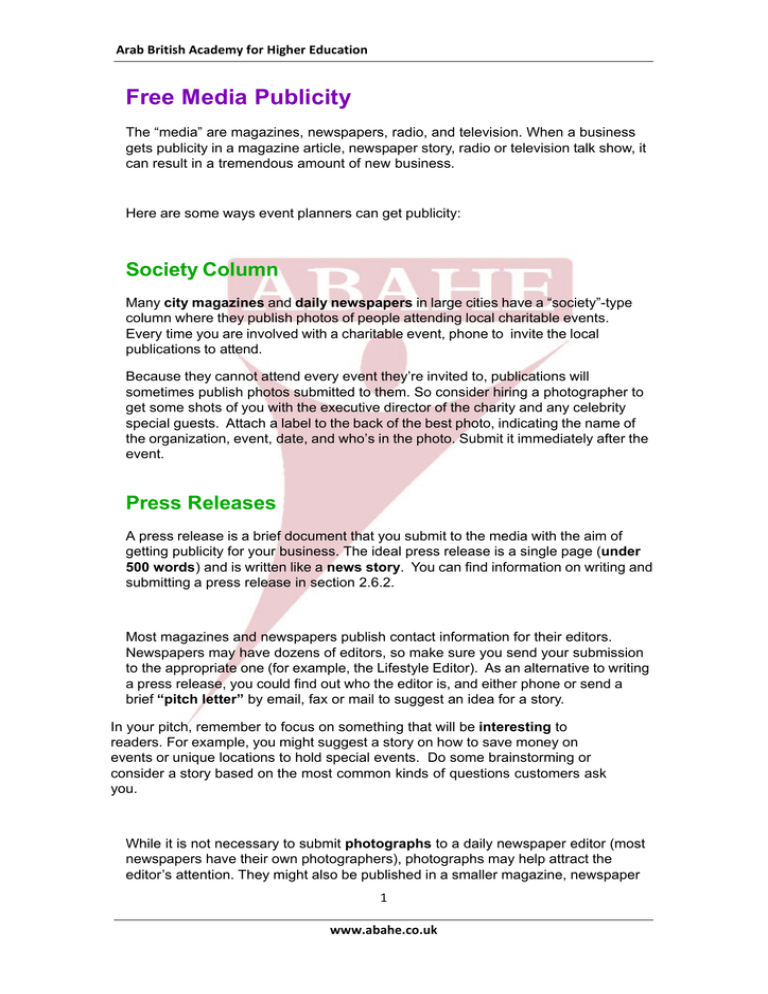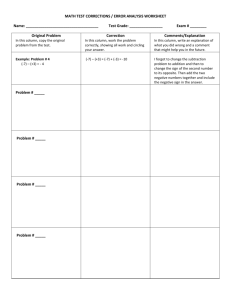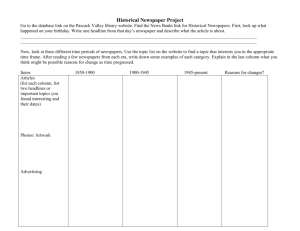
Arab British Academy for Higher Education Free Media Publicity
The “media” are magazines, newspapers, radio, and television. When a business
gets publicity in a magazine article, newspaper story, radio or television talk show, it
can result in a tremendous amount of new business.
Here are some ways event planners can get publicity:
Society Column
Many city magazines and daily newspapers in large cities have a “society”-type
column where they publish photos of people attending local charitable events.
Every time you are involved with a charitable event, phone to invite the local
publications to attend.
Because they cannot attend every event they’re invited to, publications will
sometimes publish photos submitted to them. So consider hiring a photographer to
get some shots of you with the executive director of the charity and any celebrity
special guests. Attach a label to the back of the best photo, indicating the name of
the organization, event, date, and who’s in the photo. Submit it immediately after the
event.
Press Releases
A press release is a brief document that you submit to the media with the aim of
getting publicity for your business. The ideal press release is a single page (under
500 words) and is written like a news story. You can find information on writing and
submitting a press release in section 2.6.2.
Most magazines and newspapers publish contact information for their editors.
Newspapers may have dozens of editors, so make sure you send your submission
to the appropriate one (for example, the Lifestyle Editor). As an alternative to writing
a press release, you could find out who the editor is, and either phone or send a
brief “pitch letter” by email, fax or mail to suggest an idea for a story.
In your pitch, remember to focus on something that will be interesting to
readers. For example, you might suggest a story on how to save money on
events or unique locations to hold special events. Do some brainstorming or
consider a story based on the most common kinds of questions customers ask
you.
While it is not necessary to submit photographs to a daily newspaper editor (most
newspapers have their own photographers), photographs may help attract the
editor’s attention. They might also be published in a smaller magazine, newspaper
1 www.abahe.co.uk Arab British Academy for Higher Education or newsletter that doesn’t have a photographer on staff. If you send photos
(remember to make sure you have permission from the people in the photos as
well as the photographer), put them in an attractive two-pocket folder with your
business card and a cover letter. Then follow up a week later with a phone call.
Write an Article or Column
One of the best ways to establish yourself as an expert is to write articles or a
column for a newspaper, magazine, or newsletter. While it can be tough to break
into large daily newspapers, there may be an opportunity to write for smaller
newspapers or local magazines.
You could write on any topic related to planning an event, or propose an “Ask the
Event Planner” column where you would answer questions from readers. The
length and frequency of your column will depend on the publication. You might
produce a weekly 500-word column for a local newspaper, or a monthly 1,000-word
column for a newsletter or magazine.
Make sure your article or column provides valuable information to the publication’s
readers. As with press releases, articles that sound like an ad for your services are
not likely to get published.
Once you have written your first column or article, phone the editor to ask if they
would be interested in seeing it. If so, they will probably ask you to email it. If they
want to publish it, they may offer to pay you. However, even if they don’t pay, you
should consider letting them publish it in return for including a brief bio and your
contact information at the end of the article or column.
Television and Radio Talk Shows
Phone local radio and TV shows to let them know you are available to provide event
planning advice to their viewers or listeners. Shows that might be appropriate
include morning shows and afternoon talk shows. The person to contact is the
producer of each show.
The producer will probably ask you to send them some information, so be
prepared to email or fax a few paragraphs about yourself, along with a list of
frequently asked questions. These are questions their audience would likely be
interested in knowing the answer to. You can put any questions you like on the list,
but chances are whatever you find people asking your advice about are questions
that an audience would be interested in, as well.
Television is a visual medium, so it’s also a good idea to invite them to come and film
an event.
2 www.abahe.co.uk Arab British Academy for Higher Education All Rights Reserved © Arab British Academy for Higher Education
3 www.abahe.co.uk


